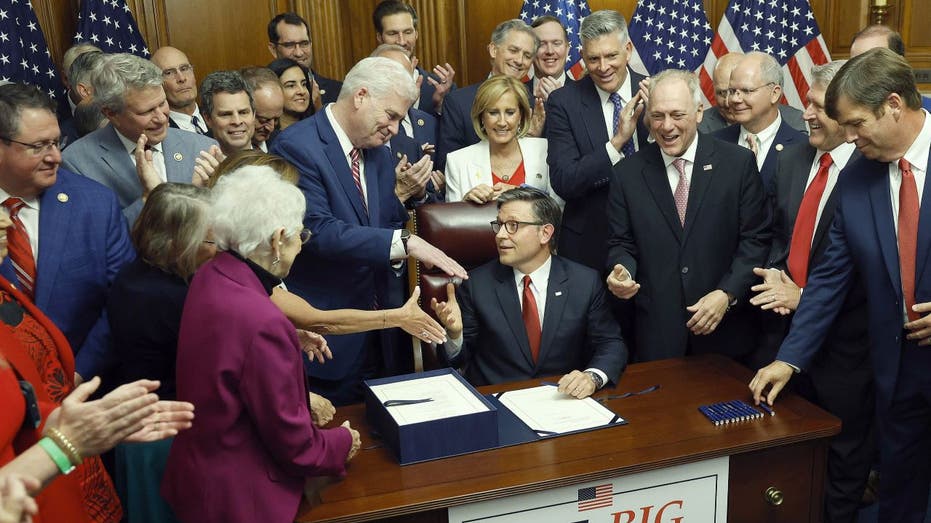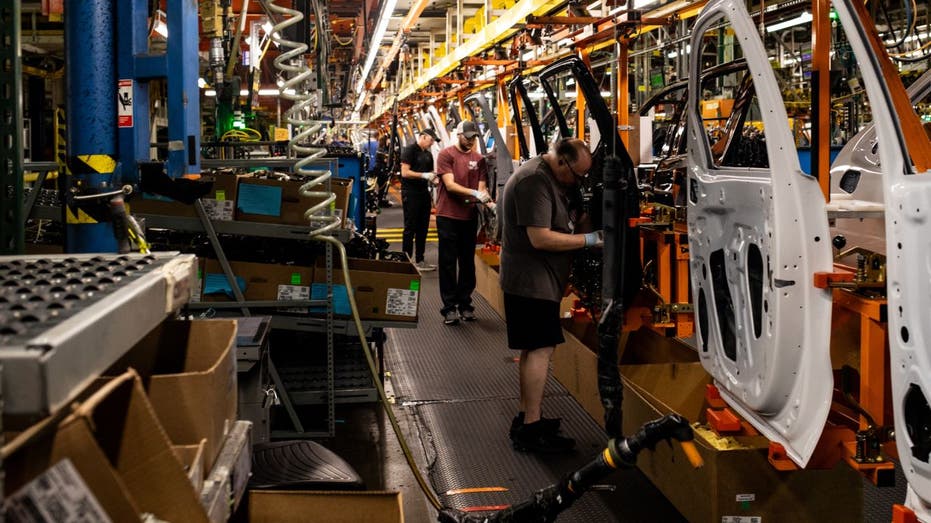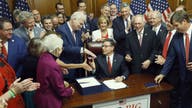House passes Trump's ‘big, beautiful bill’
Fox News' Trey Gowdy gives his take on the big news ahead of Independence Day as Congress passes President Donald Trump's ‘big, beautiful bill’ on ‘America Reports.’
Republicans in Congress passed President Donald Trump's package of tax cuts and spending policies known as the One Big Beautiful Bill Act (OBBBA), which the president is expected to sign into law on the Fourth of July.
The bill extends tax cuts originally enacted by the Tax Cuts and Jobs Act (TCJA) of 2017 set to expire this year, and some of them are extended permanently, such as lower tax rates and a higher standard deduction for taxpayers.
OBBBA also includes new forms of tax relief, including provisions to provide relief to workers earning tips and overtime, as well as to retirees, while also addressing tax issues for small businesses and those faced with making costly capital investments.
Given the breadth of the bill, businesses, workers, families and retirees will see changes to tax policies that affect them. Here's a look at five key policy areas the bill touches on.
WHAT'S IN THE 'BIG, BEAUTIFUL BILL' FOR AMERICAN WORKERS?

House Speaker Mike Johnson, R-La., and House Republicans celebrate the passage of the One Big Beautiful Bill Act July 3, 2025. (Kevin Dietsch/Getty Images / Getty Images)
Federal income taxes
The One Big Beautiful Bill Act (OBBBA) makes permanent the lower tax brackets with revised income thresholds established by the TCJA.
OBBBA also makes the standard deduction, which was roughly doubled under the TCJA, permanent ahead of its scheduled expiration this year. The bill also increases the deduction by $750 for individuals, $1,500 for married couples, and $1,125 for a head of household, effective in the 2025 tax year. About 90% of federal taxpayers use the standard deduction rather than itemizing deductions.
Expensing capital and factory investments
OBBBA restores the immediate 100% expensing of capital investment that was temporarily permitted under the TCJA and applies it retroactively to investments made on or after Jan. 19, 2025, the day before President Trump's inauguration.
The provision for capital investment expensing is permanent under OBBBA, and the cap on the maximum a taxpayer can expense is increased to $2.5 million under the bill.
REPUBLICANS DEFY FISCAL CRITICS TO PUSH THROUGH TRUMP'S SIGNATURE ‘BEAUTIFUL’ TAX CUTS
To encourage the construction of manufacturing plants and make building new factories in the U.S. more economically feasible, the bill allows companies to fully expense new factories and factory improvements.
In effect, that allows businesses to immediately realize the tax benefits of the incentive, which can make such investments more appealing. Under the pre-OBBBA tax law, businesses were required to deduct the cost of nonresidential real property over a 39-year period.

The act makes full tax expensing permanent for capital investments and factories. (Emily Elconin/Bloomberg via Getty Images / Getty Images)
Small business deduction
OBBBA makes permanent the 20% deduction for small businesses, including sole proprietorships, partnerships and S corporations to deduct up to 20% of their qualified business income, plus 20% of qualified real estate investment trust (REIT) dividends and qualified publicly traded partnership (PTP) income.
It would also create a new inflation-adjusted minimum deduction of $400 for taxpayers with at least $1,000 in qualified business income to ensure eligible small business owners can access an enhanced baseline deduction.
MOST AMERICANS TAXES TO GO UP IF HOUSE CAN'T PASS 'BIG, BEAUTIFUL BILL'
Retiree tax relief
OBBBA provides a $6,000 bonus deduction for taxpayers 65 and older on top of the standard deduction available to all taxpayers and in addition to the existing extra standard deduction of $2,000 for single filers and $1,600 per qualifying spouse for joint filers 65 and up.
The $6,000 bonus deduction is temporary and would be in effect through 2028. It phases out for higher-income retirees, with the full deduction available to individuals with incomes up to $75,000 or $150,000 for joint filers. It phases out entirely for individuals earning over $175,000 and couples earning $250,000.
The provision was devised as an alternative to the proposal to eliminate taxes on Social Security benefits outright, instead offsetting some of what they owe based on their income levels.

Tipped workers will be able to deduct some of their tips through 2028 under the bill. (iStock; Getty Images / iStock)
Tips and overtime
While the bill stops short of fully eliminating federal income taxes on tipped income and overtime as discussed on the campaign trail, it does create new deductions that will provide relief to such workers through 2028, when they're set to expire.
GET Gxstocks ON THE GO BY CLICKING HERE
Tipped workers such as restaurant servers, barbers and drivers would be able to deduct up to $25,000 in qualified tips.
Additionally, the bill creates an above-the-line income deduction for overtime premium payments of up to $12,500 for hourly workers who work overtime.




